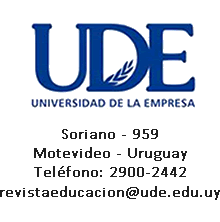La pañoleta cubana y la normalización en las instituciones educativas
DOI:
https://doi.org/10.48163/rseus.2024.12138-50Palabras clave:
pañoleta azul cubana, normalización, disciplinamiento, rituales educativos, FoucaultResumen
El objetivo de la investigación es analizar cómo se expresa la normalización de los sujetos en Cuba a través de los significados y ritos asociados con la pañoleta, considerada como un fetiche, dentro del contexto de la institucionalidad educativa primaria cubana. El estudio busca comprender cómo los fetiches, así como los rituales y mitos alrededor de los mismos, contribuyen a la formación de la subjetividad política, construcción y normalización de los individuos dentro del sistema educativo, centrándose específicamente en la enseñanza primaria donde se inicia el proceso de disciplinamiento. A través de una metodología cualitativa e interpretativa, se examinará la relación entre los conceptos normalización y control según la perspectiva de Foucault y la realidad educativa cubana, mediante la revisión bibliográfica y entrevistas a maestros y directores de escuelas primarias. El objetivo final es obtener una comprensión más profunda de cómo los rituales y símbolos, como la pañoleta, influyen en la conformación de la identidad y la adhesión a las normas dentro del contexto educativo cubano, lo que podría proporcionar información relevante para el análisis del discurso ideológico presente en las escuelas primarias de Cuba. Además de la revisión bibliográfica sobre el tema se entrevistan a informantes calificados para correlacionar lo teórico e histórico a las realidades particulares de maestros y directores de instituciones educativas en ejercicio por los últimos 20 años.
Descargas
Descargas
Archivos adicionales
Publicado
Cómo citar
Número
Sección
Licencia
Derechos de autor 2024 Jeisil Aguilar Santos

Esta obra está bajo una licencia internacional Creative Commons Atribución 4.0.
Política para revistas de acceso abierto
Los autores/as que publiquen en esta revista aceptan las siguientes condiciones:
a. Los autores/as conservan los derechos de autor y ceden a la revista el derecho de la primera publicación, con el trabajo registrado con la licencia de atribución de Creative Commons (CC-BY), que permite a terceros utilizar lo publicado siempre que mencionen la autoría del trabajo y a la primera publicación en esta revista.
b. Los autores/as pueden realizar otros acuerdos contractuales independientes y adicionales para la distribución no exclusiva de la versión del artículo publicado en esta revista (p. ej., incluirlo en un repositorio institucional o publicarlo en un libro) siempre que indiquen claramente que el trabajo se publicó por primera vez en esta revista.






















